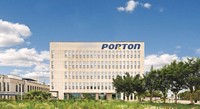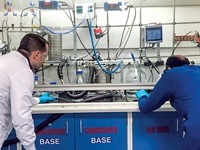Advertisement
Grab your lab coat. Let's get started
Welcome!
Welcome!
Create an account below to get 6 C&EN articles per month, receive newsletters and more - all free.
It seems this is your first time logging in online. Please enter the following information to continue.
As an ACS member you automatically get access to this site. All we need is few more details to create your reading experience.
Not you? Sign in with a different account.
Not you? Sign in with a different account.
ERROR 1
ERROR 1
ERROR 2
ERROR 2
ERROR 2
ERROR 2
ERROR 2
Password and Confirm password must match.
If you have an ACS member number, please enter it here so we can link this account to your membership. (optional)
ERROR 2
ACS values your privacy. By submitting your information, you are gaining access to C&EN and subscribing to our weekly newsletter. We use the information you provide to make your reading experience better, and we will never sell your data to third party members.
Investment
US Treasury Department derails Asymchem’s acquisition of Snapdragon
Decision indicates pharmaceuticals may join semiconductors and electronics on the radar screen for security risks
by Rick Mullin
September 12, 2022

Snapdragon Chemistry, a drug services firm specializing in flow chemistry technology, says its acquisition by Asymchem, a pharmaceutical research and manufacturing company based in China, will not proceed.
The deal was first announced in February. It fell through as Snapdragon and Asymchem were unable to settle on mitigation terms that would satisfy the US Treasury’s Committee on Foreign Investment in the United States (CFIUS).
CFIUS was established in 1975 with the authority to block direct foreign investment in US companies on national security grounds. The committee has stopped an increasing number of deals from going through in recent years, including a large number of acquisitions by Chinese interests.
Snapdragon manufactures early- and clinical-stage drug candidates in volumes of up to about 30 kg, and the acquisition would have provided access to later-stage and commercial-scale production at Asymchem’s plant in Tianjin, China, according to Snapdragon CEO Matt Bio. Conversely, the deal would have given the Chinese company early-stage manufacturing assets in the crucial US market.
Snapdragon was formed in 2014 as a spin-out from the Massachusetts Institute of Technology. It received $700,000 from the US Biomedical Advanced Research and Development Authority in 2020 to develop a continuous process for nucleotide triphosphates used to produce messenger RNA vaccines.
The company has worked in partnership with Asymchem in recent years, and the Chinese firm participated in an $8.5 million investment round in 2020 allowing Snapdragon to build its first pharmaceutical production suites. The company recently commissioned a 4,700 m2 research and manufacturing facility in Waltham, Massachusetts.
A report published last month by the Center for Strategic and International Studies (CSIS) notes that foreign investment in the US increased from $71 billion in 1990 to a peak of $511 billion in 2015. Much of the investment between 2013 and 2019 involved China, according to the CSIS. The center points to a Treasury study finding that CFIUS reviewed a record-breaking number of deals in 2021.
To date, deals blocked by CFIUS have primarily involved computer systems, semiconductors, and other electronics. The CSIS report does not list chemical or pharmaceutical-related technology as a category affected by CFIUS’s review.
James Bruno, president of the consulting firm Chemical and Pharmaceutical Solutions, says he is not aware of any pharmaceutical acquisitions derailed by the government, but he is not surprised to hear the news about Asymchem and Snapdragon.
“You are going to start seeing more of these,” Bruno says, citing indications that the committee is particularly interested in vetting deals involving technology and intellectual property that emerge from US universities, a primary source of pharmaceutical innovation.
Bio says parties to the acquisition did not anticipate a government challenge, given other deals in the sector involving Chinese companies, notably Porton’s purchase of a similar firm, J-Star Research, in 2017. “As the political climate deteriorated since February, it did appear that it might be a challenge to get approval,” Bio says. “We will continue our growth plans. We have access to capital. It was just a lot of wasted time at this point.”
Snapdragon plans to continue working with Asymchem at customers’ discretion, Bio says. Asymchem did not respond to requests for comment.





Join the conversation
Contact the reporter
Submit a Letter to the Editor for publication
Engage with us on Twitter